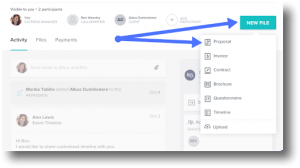
As a business, you’ll definitely want to be number one on Google’s search engine, but it isn’t always clear how to get there. Google’s animal-themed updates (like Penguin, Panda, and Pigeon) constantly change the rules. In fact, the latest Google Update in April is set to penalize sites that don’t have a mobile optimized website, but that’s a whole different story. You can read more about that here.
How does Google work?
While the algorithms and the rules for getting to the front page seem to change every few months, the motivation behind Google’s actions remains the same: to bring the most relevant, high quality sites to as many people as possible. To get to that elusive #1 rank, you need to make sure your page is better than anything else out on the Internet regarding your topic.
For those of you who aren’t particularly tech savvy, but are still trying to make your website as Google-friendly as possible, here’s a list of five super simple tips to get your site to the first page.
- Make sure each and every page of your website has a different “keyword”
What’s the theme of your page? If you could boil it down to one single word or phrase, what would it be? That word is your “keyword,” and it’s what Google will be looking for on every page of your site. It’s very important that no two blog posts or articles on your page are talking about the exact same thing.
- Make sure your blog article is a certain length
Never forget, Google is looking for a comprehensive source of information. Make sure your articles are at least 500 words long and filled with good content. Anything less than that will detract from the quality of your article.
- Don’t try to force your writing to look or read a certain way
The most important metric in your writing is for it to read naturally. Remember, you’re writing for real people, not a robot! Avoid awkwardly stuffing in as many keywords as possible, as this will make your writing look stiff and forced. Make sure you get someone to proofread your work for clarity and errors before you make it live.
- Mention your keyword in your title, any headers, and in your meta description
Your keyword should be the all-encompassing theme of your blog post. Make sure you bring it up front and centre in any headers and your page title. This includes the names of any images on the page as well.
- Give your blog post a good URL
If you’re using WordPress, you have the option of changing your URLs to something static instead of an automatic string of numbers. Think about it! What looks better, http://website.com/112748172, or http://website.com/SEO-Tips?
This will help Google (and anyone searching for you) clearly understand the topic of your article.
(215)
Report Post






